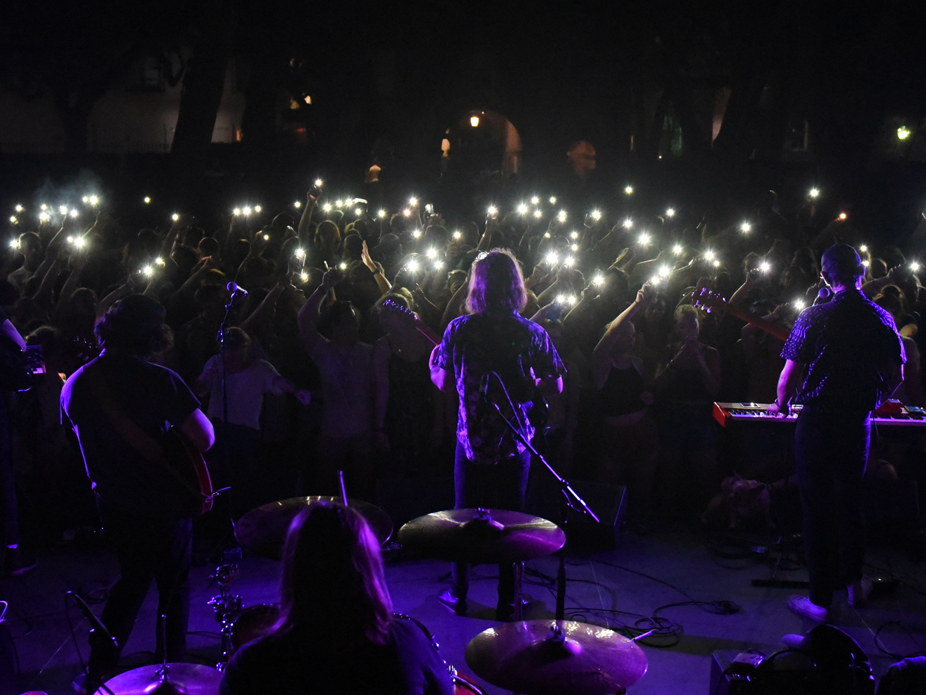Music History & Culture
Ancient Melodies to Modern Masterpieces
Studying Music History and Culture provides you with a deep understanding of the cultures, composers, musicians, and musicologists that shaped musical expression and contributed to the development of the different genres and styles we know today.
You'll gain an appreciation for the artistry and creativity behind musical masterpieces and understand the significance of different musical movements and innovations.
And, you'll enrich your own enjoyment and interpretation of music.
The Music History and Literature area is designed for students aspiring to write about or teach music as their main emphasis.
Opportunities, Courses & Inspiration
-
Student Opportunities
The Music History and Culture concentration provides you with a wide range of opportunities to help prepare you for graduate school or career paths such as music journalism, music education, music therapy, and work in libraries, museums and historical societies:
Hotbed for History: Charleston is a music history hotbed with deep roots in jazz, gospel, and classical traditions. From the Gullah cultures influence on spirituals and R&B, to the renowned Spoleto Festival USA's celebration of opera, symphony and experimental performance, Charleston has long been a center of musical innovation and artistic expression.
Research Opportunities: As your capstone course, you will conduct original research in the area of music or music literature. You will write bout your findings in conjunction with your faculty mentor, develop your ability to articulate your musical knowledge and insights, and contribute to the ongoing exploration of the musical past.
Performance Opportunities: Participate in chamber ensembles or other performance groups that focus on historical repertoire to refine your skills and bring music history to life.
Volunteer & Community Outreach: Boost your resume and gain valuable experience and insights through volunteer opportunities through the many Charleston music venues, performing organizations, and museums.
Study Abroad: You may choose to broaden your perspectives with options to study abroad and explore the musical traditions of other cultures. Study abroad experiences may include course such as "Jamaica as Inspiration for Literature, Music, and Film," and other music history inspired option.
Guests Lectures and Workshops: Attend lectures and workshops by visiting scholars, broadening your knowledge and exposure to diverse perspectives within music history.
-
Course of Study
Learn about the evolution of music with a broader perspective and a deeper awareness of the cultural, political, and economic contexts in which music was created and performed.
Course requirements include the following:
- At least one special topics seminar (MUSC 444)
- Art History (ARTH 102) which emphasizes the periodization of art styles from the Renaissance through Baroque, Neo-Classical, and Romantic.
- A senior essay (MUSC 445 or MUSC 499) representing your original research into an area of music or music literature, written in conjunction with a faculty mentor, is the capstone of this concentration.
Students planning graduate work should note that a reading knowledge of German plus either French or Italian is required for most graduate musicology programs.
B.A Music in the Catalog -
Renowned Faculty
As a College of Charleston student in Music History and Culture, you will learn from a renowned faculty including department chair and ethnomusicologist, Michael O'Brien and scholar/researcher Kim Sauberlich.
 Michael O'Brien is an ethnomusicologist whose work has principally focused on the intersection of Latin American popular music and cultural politics.
Michael O'Brien is an ethnomusicologist whose work has principally focused on the intersection of Latin American popular music and cultural politics.He is also active as a performer, composer, and arranger of music based on Latin American popular idioms, particularly the tango. His compositions have been published by FJH Music, Latham Music, Ludwig Masters, and the National Cello Institute.
 Kim Sauberlich is an Atlantic Music scholar who focuses on the intersection of embodied performance and racialized knowledge production across Brazil, the Caribbean, and the United States. She has presented her research at the American Musicological Society, the Society for Ethnomusicology, and the International Musicological Society.
Kim Sauberlich is an Atlantic Music scholar who focuses on the intersection of embodied performance and racialized knowledge production across Brazil, the Caribbean, and the United States. She has presented her research at the American Musicological Society, the Society for Ethnomusicology, and the International Musicological Society.


World Rhythms. Lowcountry Traditions.
Music provides a glimpse into the human experience. Studying music history and culture in Charleston offers unparalleled access to the roots of jazz, gospel, classical, and folk music, allowing you to explore how these genres shape the musical and cultural landscape.
